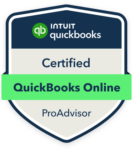Why is small business financial management important? Imagine trying to navigate through a dense forest without a map. Financial management for small businesses works like a map guiding you toward success and sustainability. Proper financial management ensures you know where your money is coming from and where it’s going, helping you make informed decisions that can lead to growth and stability.
In this blog, we’ll dive deep into the essentials of financial management for small businesses. We’ll cover setting up financial foundations, managing daily finances, understanding financial statements, exploring funding options, and more. By the end of this post, you’ll have a comprehensive guide to managing your business’s finances effectively.
Did you know that according to the Small Business Administration, poor financial management is one of the top reasons small businesses fail? Studies show that 82% of businesses face cash flow problems, often leading to closure. Understanding and applying sound financial management practices can dramatically increase your business’s chances of success.
At LUCI Financial Solutions, we specialize in helping small businesses navigate their financial challenges. Stay tuned to learn practical tips and strategies to keep your business financially healthy.
1. Setting Up Financial Foundations

Are you ready to build a strong financial foundation for your small business? In this section, we’ll explore crucial steps like setting up a business bank account, creating a financial plan, and choosing the right accounting method. Learn how these foundational practices can pave the way for your business’s financial success.
Establishing a Business Bank Account
Starting your small business financial management’s financial journey begins with opening a dedicated business bank account. Separating personal and business finances is crucial for clarity and legal reasons. It helps in tracking expenses, managing cash flow, and simplifying tax filings.
Steps to set up a business bank account:
- Choose a bank that suits your business needs.
- Gather necessary documents (business registration, EIN, personal identification).
- Visit the bank or apply online.
Creating a Financial Plan
A solid financial plan is like a roadmap for your business, guiding you toward your financial goals. It helps in budgeting, forecasting, and strategic planning.
Importance of a business financial plan:
- Provides a clear financial direction.
- Helps in setting realistic financial goals.
- Assists in securing funding from investors or banks.
Components of a comprehensive financial plan:
- Budgeting: Allocate resources wisely and control spending.
- Forecasting: Predict future financial performance based on historical data.
- Cash Flow Management: Ensure sufficient liquidity to meet expenses.
- Financial Goals: Set short-term and long-term financial targets.
Choosing the Right Accounting Method
Selecting the appropriate accounting method is essential for accurate financial reporting. There are two main accounting methods: cash accounting and accrual accounting.
Cash vs. Accrual Accounting:
| Aspect | Cash Accounting | Accrual Accounting |
| Recognition Time | Transactions recorded when cash changes hands | Transactions recorded when they are earned/incurred |
| Complexity | Simpler | More complex |
| Financial Picture | Immediate cash flow insight | Comprehensive view of income and expenses |
Pros & Cons:
| Method | Pros | Cons |
| Cash Accounting | Easy to implement, good for small businesses | May not provide a complete financial picture |
| Accrual Accounting | More accurate financial representation | More complex, requires detailed tracking |
2. Managing Day-to-Day Finances

Are you struggling to keep your daily finances in order? This section will guide you through effective strategies for tracking income and expenses, budgeting, and managing cash flow. Ready to take control of your finances? Let’s dive in!
Tracking Income & Expenses
Accurate record-keeping is essential for understanding your business’s financial health. By tracking every penny that comes in and goes out, you can make informed decisions and avoid financial pitfalls.
Tools & Software for Tracking Finances:
- QuickBooks: Ideal for small businesses, offering comprehensive features for tracking income and expenses.
- FreshBooks: User-friendly for service-based businesses, focusing on invoicing and time tracking.
- Xero: Great for real-time financial tracking, with an intuitive interface.
- Wave: A free tool perfect for startups and small businesses.
- Excel: A customizable tool for businesses preferring manual tracking.
Budgeting & Expense Management
Creating and adhering to a budget helps you plan your finances and ensure you don’t overspend. A budget acts as a financial roadmap, guiding you toward your business goals.
Tips for Managing & Reducing Expenses:
- Review Regularly: Frequently review your expenses to identify and eliminate unnecessary costs.
- Negotiate with Suppliers: Seek better terms or discounts from your suppliers to save money.
- Automate Payments: Use automated systems to avoid late fees and take advantage of early payment discounts.
- Cut Non-Essentials: Identify non-essential expenses and cut them out to save money.
- Use Technology: Leverage technology to streamline operations and reduce costs.
- Energy Efficiency: Implement energy-saving measures to reduce utility bills.
- Remote Work: Encourage remote work to save on office space and utilities.
Cash Flow Management:
Understanding and managing cash flow is critical for maintaining your business’s financial health. Cash flow refers to the movement of money in and out of your business, and managing it well ensures you have enough funds to cover your expenses.
Techniques for Improving Cash Flow:
- Invoice Promptly: Send invoices immediately after a sale to speed up payments.
- Offer Incentives for Early Payment: Encourage customers to pay early by offering discounts.
- Manage Inventory Wisely: Avoid overstocking and reduce inventory costs.
- Control Expenses: Regularly review and reduce unnecessary expenses.
- Negotiate Payment Terms: Negotiate better payment terms with suppliers to improve cash flow.
- Use a Line of Credit: Utilize a line of credit to cover short-term cash flow gaps.
- Forecast Cash Flow: Regularly forecast cash flow to anticipate and manage shortages.
3. Financial Reporting & Analysis
Ever wondered how to truly understand your business’s financial health? This section covers the essentials of financial reporting and analysis, including regular financial statements and key financial ratios. Let’s explore these crucial tools that can help you make informed decisions for your business.
Regular Financial Statements – Types Explained
- Income Statement: Also known as a profit and loss statement, it shows your revenue, expenses, and profits over a specific period.
- Balance Sheet: Provides a snapshot of your business’s financial position, detailing assets, liabilities, and equity at a specific point in time.
- Cash Flow Statement: Tracks the flow of cash in and out of your business, highlighting operating, investing, and financing activities.
Here’s how to Prepare & Interpret these statements:
Income Statement:
- Gather Data: Collect all revenue and expense data for the period.
- Calculate Revenue: Sum up all income earned from sales or services.
- List Expenses: Include all costs incurred, such as rent, salaries, and utilities.
- Calculate Net Income: Subtract total expenses from total revenue.
Balance Sheet:
- List Assets: Include cash, inventory, and property.
- List Liabilities: Record all debts and obligations.
- Calculate Equity: Subtract liabilities from assets to determine the owner’s equity.
Cash Flow Statement:
- Operating Activities: Include day-to-day transactions like sales and expenses.
- Investing Activities: Record investments in equipment or property.
- Financing Activities: Include loans or repayments.
Key Financial Ratios- Important Financial Ratios to Monitor:
| Ratio | Formula |
| Profit Margin | |
| Gross Profit Margin | (Revenue – Cost of Goods Sold) / Revenue |
| Net Profit Margin | Net Income / Revenue |
| Liquidity Ratios | |
| Current Ratio | Current Assets / Current Liabilities |
| Quick Ratio | (Current Assets – Inventory) / Current Liabilities |
Here’s how to calculate and use these ratios in decision-making:
Profit Margin:
- Gross Profit Margin: Indicates the percentage of revenue that exceeds the cost of goods sold, showing how efficiently a business is producing its goods.
- Net Profit Margin: Reflects overall profitability after all expenses, helping assess the business’s financial health.
Liquidity Ratios:
- Current Ratio: Measures the ability to pay short-term obligations with short-term assets.
- Quick Ratio: Assesses the ability to meet short-term liabilities without relying on inventory sales.
4. Financing & Funding
Securing the right financing is crucial for small businesses to grow and thrive. Understanding and choosing the best funding options can make a significant difference:
Exploring Funding Options:
Small businesses have several funding options such as traditional bank loans, SBA loans, government and private grants, venture capital, and crowdfunding. Choosing the right funding depends on your business needs and repayment capability.
Managing Debt:
Effective strategies for managing debt include prioritizing high-interest debts, consolidating loans, and negotiating better terms. Understanding interest rates and loan terms is essential to avoid financial pitfalls and ensure your business remains financially healthy and sustainable.
5. Tax Management
Understanding Business Taxes: Small businesses need to be aware of various taxes, including income tax, payroll tax, sales tax, and property tax. Staying compliant with tax regulations is crucial to avoid penalties and legal issues. Keep accurate records, take advantage of deductions, and plan for quarterly tax payments.
Hiring a Professional vs. DIY Tax Preparation:
| Hiring a Professional | DIY Tax Preparation |
| Expert Guidance | Cost-effective |
| Saves time | Complete control |
| Reduces errors | Requires tax knowledge |
6. Risk Management & Insurance
Small businesses face various financial risks, including cash flow issues, unexpected expenses, credit risks, and market fluctuations. Assessing these risks involves analyzing financial statements, cash flow patterns, and market trends. Having adequate insurance coverage is essential for mitigating risks.
Here are some types of insurance small businesses should consider:
| Insurance Type | Benefits |
| General Liability | Covers legal fees and damages |
| Property Insurance | Protects business property from damage/theft |
| Workers’ Compensation | Covers employee injuries |
| Professional Liability | Protects against claims of professional errors |
7. Leveraging Technology
Using accounting software offers numerous benefits, including improved accuracy, real-time financial tracking, and simplified tax preparation. Popular accounting tools for small businesses include QuickBooks, Xero, and FreshBooks.
Automation saves time and reduces errors by handling repetitive tasks such as invoicing, payroll, and expense tracking. Examples of processes that can be automated include:
- Invoicing: Automate invoice generation and sending.
- Payroll: Use software to manage employee payments.
- Expense Tracking: Automatically categorize and track expenses.
8. Building a Financial Team
Hiring the right financial professionals is crucial for effective small business financial management. Key roles include accountants, bookkeepers, and financial advisors. Accountants handle taxes and financial reporting, bookkeepers manage daily transactions, and financial advisors provide strategic guidance. Choosing the right professionals involves assessing their qualifications, experience, and fit with your business needs.
Outsourcing vs. In-House Financial Management
Outsourcing vs. In-House Financial Management includes these 5 main factors.
| Aspect | Outsourcing | In-House |
| Cost | Generally lower; pay for services only | Higher; salaries, benefits, training |
| Expertise | Access to specialized skills | May require ongoing training |
| Flexibility | Scalable based on business needs | Less flexible due to fixed staff |
| Control | Less direct control over processes | More control over financial activities |
9. Continuous Improvement
Regular financial reviews are essential for maintaining business health. Steps include reviewing financial statements, analyzing cash flow, and assessing budget performance. Regular check-ups help identify issues early and ensure financial stability.
Staying updated with financial regulations and market trends is crucial. Adapt your financial strategies to respond to changes in the market and regulatory environment. This flexibility helps your business remain competitive and compliant.
In Conclusion
Throughout this blog, we discussed the importance of small business financial management. We covered foundational elements like setting up business bank accounts, creating financial plans, and choosing the right accounting methods.
Additionally, we explored day-to-day financial management, financial reporting and analysis, financing and funding options, tax management, risk management, leveraging technology, and building a financial team.
Implementing these strategies can significantly impact your business’s success and sustainability. By taking proactive steps to manage your finances effectively, you ensure better control, improved decision-making, and long-term growth. For expert financial management services, contact LUCI Financial Solutions.
Our team is dedicated to helping small business owners navigate their financial challenges and achieve their business goals. Reach out today to take your financial management to the next level.










